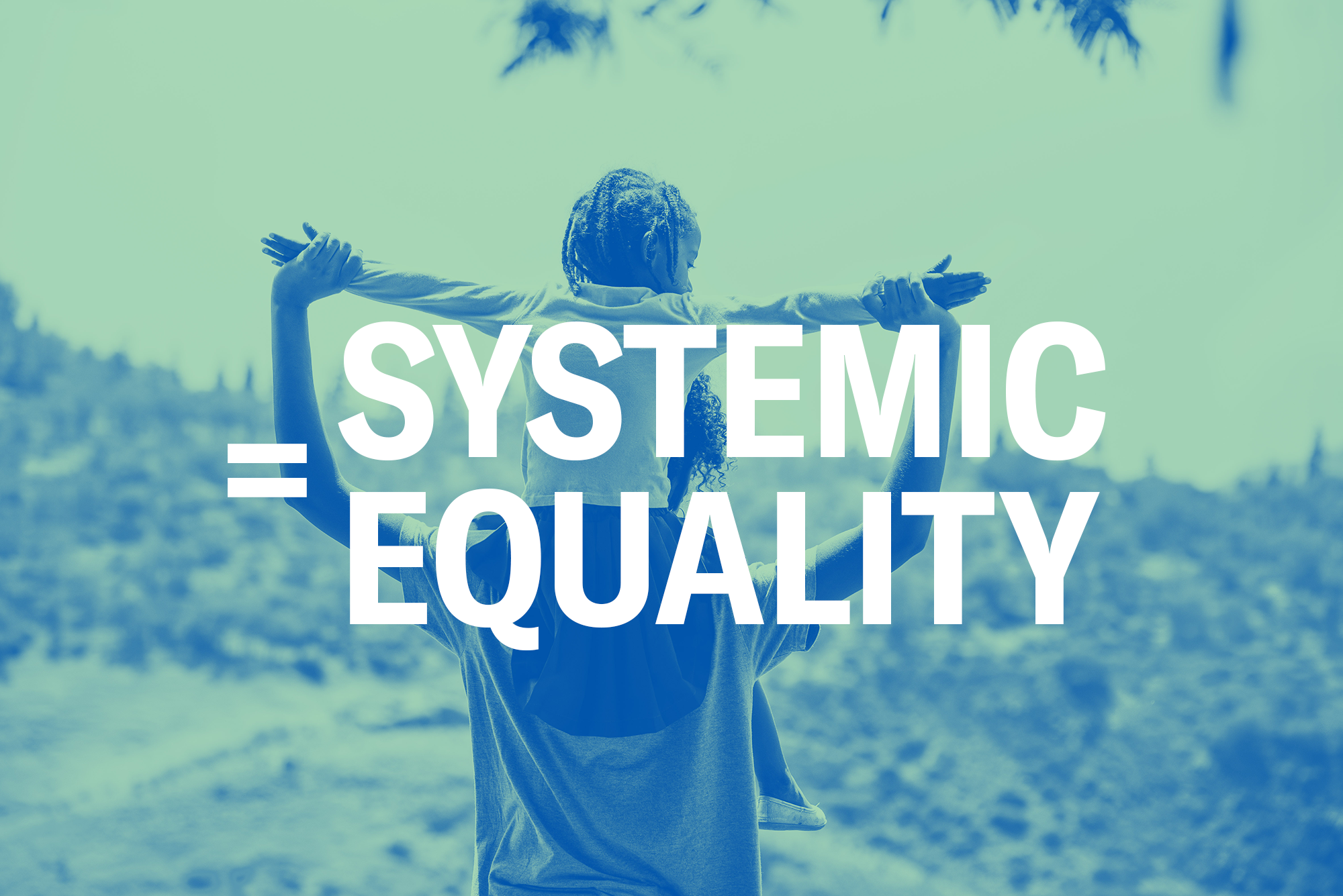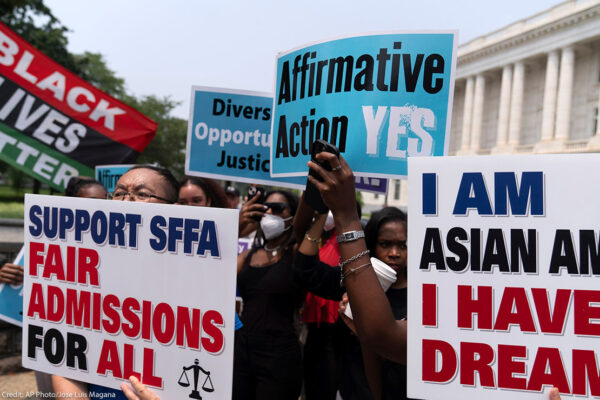

Systemic Equality for Indiana
By completing this form, I agree to receive occasional emails per the terms of the ACLU’s privacy statement.
Last updated on November 06, 2025
Systemic Equality for Indiana
The Systemic Equality agenda is a multi-year racial justice initiative that seeks to address America’s legacy of racism and systemic discrimination.
Recently, America has been in the midst of a racial reckoning, spurred by unjust police killings of Black people and reflected in racist rhetoric and actions at every level of our society. Throughout history, racism has played an active role in the creation of our systems of education, health care, incarceration, employment, and virtually every other facet of life since America's founding. These systemic policies and practices have led to an unequal system where white people have both implicit and explicit advantages because of the color of their skin.
That's why the ACLU recently launched our Systemic Equality agenda, a multi-year racial justice initiative that seeks to address America’s legacy of racism and systemic discrimination in Indiana and the nation through advocacy efforts to target the Indiana Legislature and other elected state officials, strategies to strike down laws and practices that exclude and harm Black Hoosiers, and efforts to build power directly with our local communities.
Join us in our continued fight for civil rights and civil liberties in Indiana as we redouble our efforts to tear down economic, social, and government policies that promote oppression and inequality.
Promote Reconciliation
The scars created by colonialism, hundreds of years of slavery, and racially discriminatory policies are deep. Our work will directly address the impact of that history on our present, including the scourge of mass incarceration and violent overpolicing, both of which disproportionately affect Black Hoosiers.
Reducing mass incarceration in Indiana:
Black Hoosiers are disproportionately affected by the criminal legal system, period. In total, Black people account for 34 percent of the prison population and only 9 percent of Indiana’s adult population. In order to create a true justice system, we must examine and reimagine components of the criminal legal system that worsen racial inequities, including ending cash bail, sentencing reform, and eliminating re-entry hurdles such as electronic monitoring fees.
Reimagining policing:
The underlying problem with policing isn't just the lack of de-escalation training or accountability procedures. The problem is the outsized and ever-expanding scale of policing that leads inevitably to unnecessary interactions with the police, unlawful use of excessive force and, tragically, the killing of Black men and women. We will continue to work with advocates throughout the state, pushing cities toward sweeping reforms limiting police use of force, including banning chokeholds. We must also demand that President Biden set federal lethal force standard at the National level. But regardless of reform, we must ultimately reduce the role, resources, and power of police, ending overpolicing and police surveillance in communities of color.
In Indiana, we have also seen efforts to criminalize protesters, from deploying police to respond to Black Lives Matter protests, to extreme Indiana legislative efforts to increase protest penalties which could result in longer prison sentences and felony convictions, and deprive Black and Brown individuals of their First Amendment rights.
Challenging race-based treatment of youth in the juvenile legal system:
The same disparities that occur in the adult criminal legal system are also impacting kids. Indiana must enact commonsense policies designed to confront systemic racism in the juvenile legal system and disrupt the school-to-prison pipeline.
In schools, far too often, Black and Brown students find themselves antagonized by their own schools’ disciplinary policies. Young Hoosiers are met at schools by armed police officers, with nearly half of Indiana students in schools with a police presence but without a psychologist, nurse, social worker, or counselor. Challenging racial discrimination in Indiana school districts is key to supporting Black and Brown students so that they can learn without the fear of being targeted for being themselves.
In addition, once kids enter the juvenile legal system, Indiana must ensure that kids are not held in adult facilities and that juvenile records are automatically expunged, giving kids a fair chance once they leave a juvenile facility.
Extend Empowerment
The right to vote is the heart of our democracy, but lawmakers continue to pursue legislation that would make it harder for Black, Indigenous and people of color (BIPOC) to vote. We advance a vision of voting that is accessible, convenient and safe through legislation and advocacy, and through our work in the courts.
Protecting and expanding voting rights:
Systematic efforts by politicians to erect voting barriers and to discriminate against voters of color have tipped the balance of power. We must now take urgent action to protect our voting rights, particularly for Black voters in Indiana who continue to be targeted by suppressive tactics.
We know fair voting districts are fundamental to ensuring that every vote counts. To stop some of the worst effects of gerrymandering, Indiana should move to an independent redistricting commission. Not allowing politicians to draw their own districts is a good place to start ensuring that voters of color are represented.
Voter education:
There are many misconceptions surrounding whether or not people who have been previously incarcerated can vote in the state of Indiana, leading to confusion and misinformation regarding the right to vote. Indiana is one of only 16 states, including the District of Columbia, where felons lose their voting rights only while incarcerated, and receive automatic restoration upon release.
We will continue to work in communities and with re-entry partners to ensure that Hoosiers who have been previously incarcerate know, Yes, You Can Vote.
Increase Access
A lingering global pandemic has exacerbated existing wealth gaps between Black and white households, and the ability of Black people to survive and thrive. Our work will focus on policies to close those gaps, especially racial health disparities including access to reproductive care, and disparities within Indiana’s education system.
Fighting for reproductive rights throughout Indiana:
Anti-abortion extremists would like to see abortion banned outright in Indiana, and in order to do so, are attempting to chip away at people’s access to safe, reliable reproductive health care. Black people are especially vulnerable to these attacks as they are still three times more likely to die from pregnancy or during childbirth than white people. In Indiana, 208 Black women die out of every 100,000 through childbirth compared to 108 white women.
To drastically reduce health inequalities, racial justice and reproductive freedom must go hand in hand. Here in Indiana, the ACLU currently has four pending cases defending Hoosiers' rights to make their own reproductive decisions.

Related Issues
Related Content

- Racial Justice|
- +1 Issue



